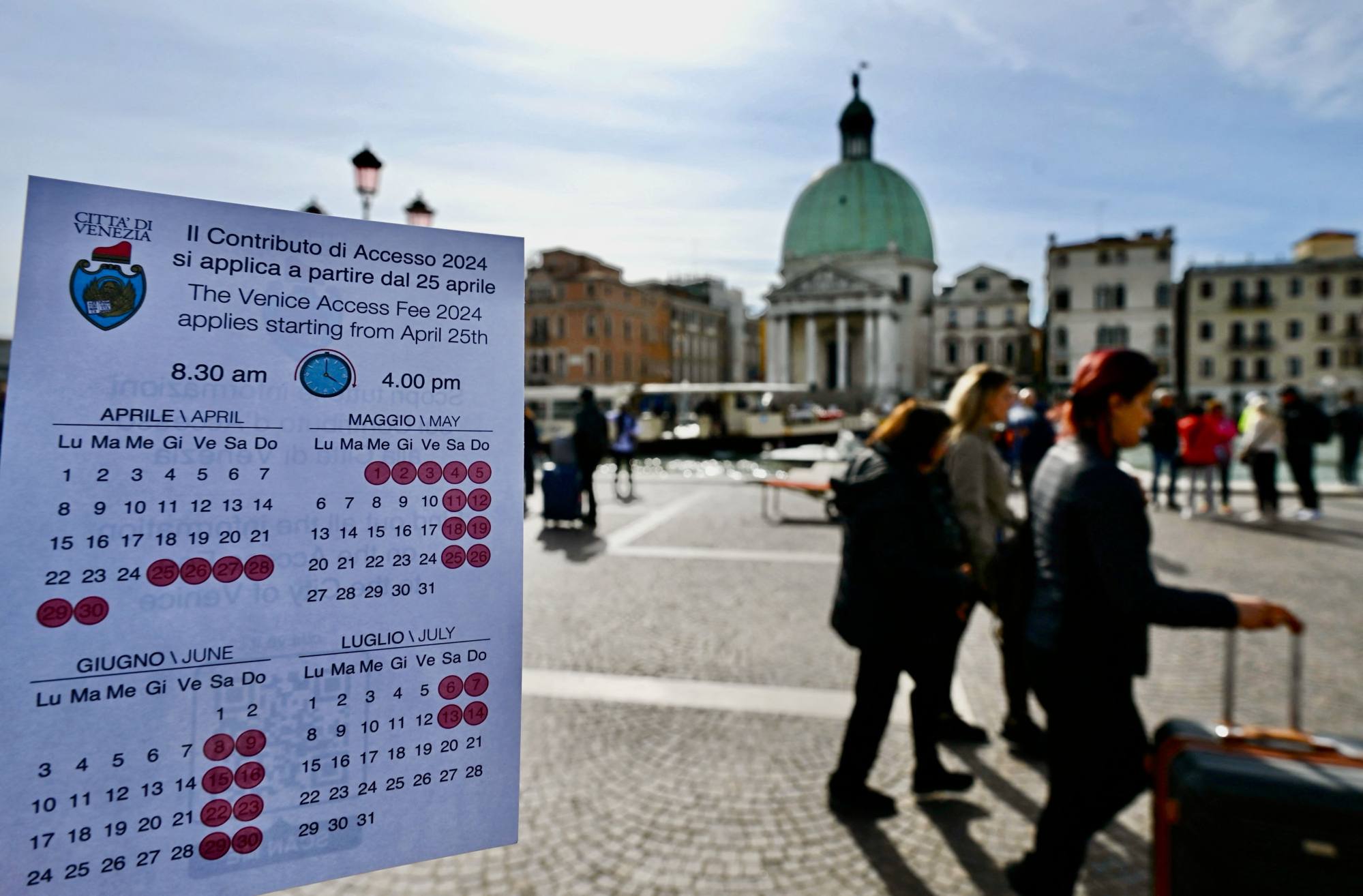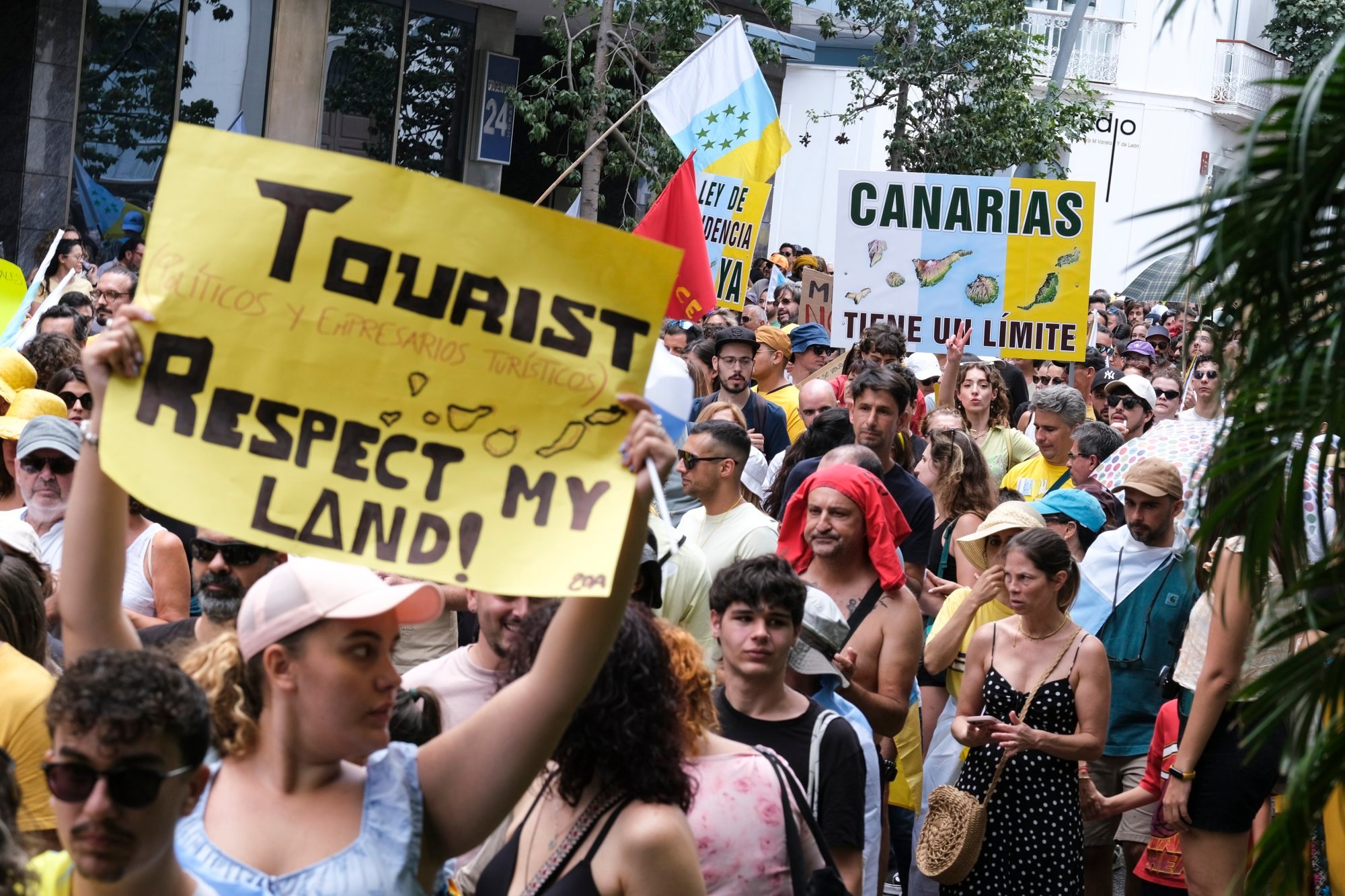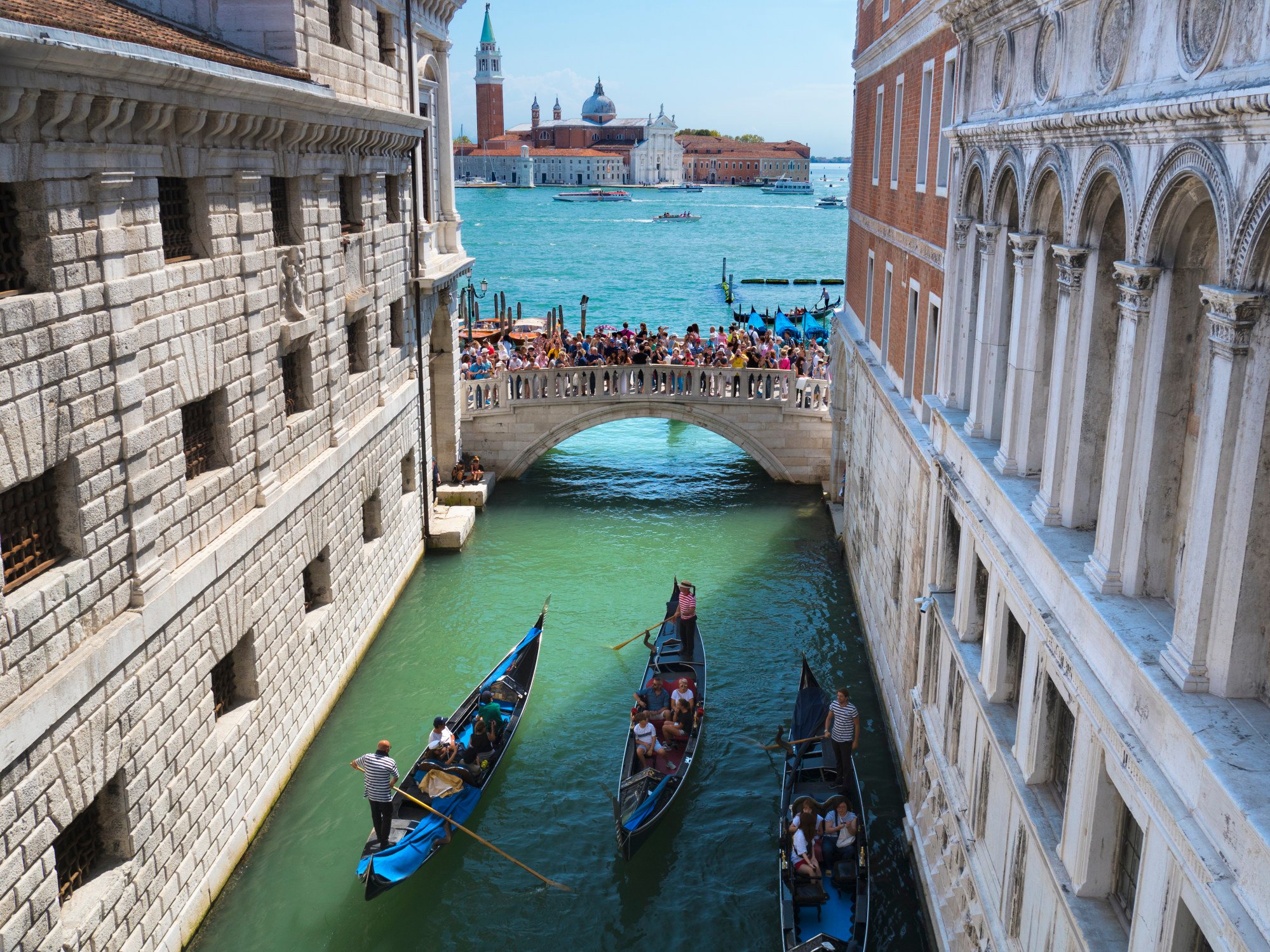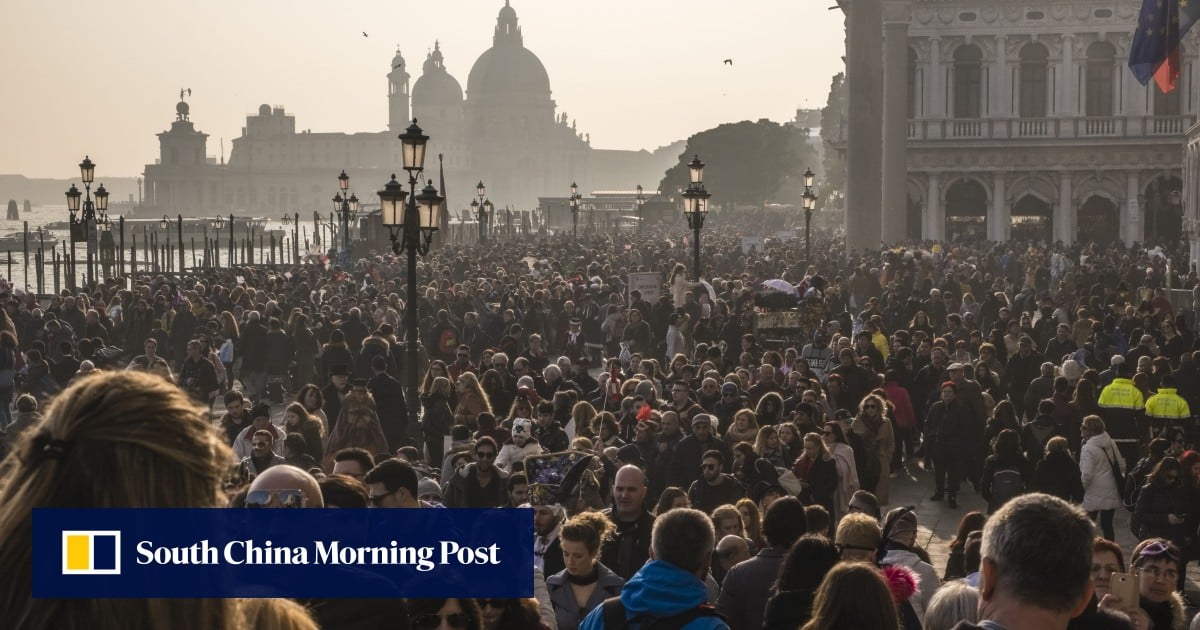Tens of thousands more pour into the city’s narrow streets for the day, often from cruise ships, to see sights including St Mark’s Square and the Rialto Bridge.

The aim of the tickets is to persuade day trippers to come during quieter periods, to try to thin out the worst of the crowds. Initially, tickets will only be required on 29 busy days throughout 2024, mostly weekends from May to July.
The scheme is being closely watched as tourist destinations worldwide grapple with surging numbers of visitors, who boost their economies but risk overwhelming communities and damaging fragile ecosystems and historical sites.
Overtourism: 20 cities that could be the next ones to suffer
Overtourism: 20 cities that could be the next ones to suffer
Luigi Brugnaro, the mayor of Venice, has described the city’s scheme as “an experiment, and the first time it’s been done anywhere in the world”.
“Our aim is to make Venice more liveable,” he said earlier this month.

Venice, spread over more than 100 small islands and islets in northeastern Italy, is considered one of the world’s most beautiful cities. The UN cultural body Unesco listed the city and its lagoon as a World Heritage site in 1987, citing it as an “extraordinary architectural masterpiece”.
The idea had long been debated, but repeatedly postponed over concerns it would seriously dent tourist revenue and compromise freedom of movement.

During a debate on the plan last September, opposition councillors cast the measure as a hastily arranged concession to Unesco that would not have any impact.
“€50 might have done something,” said one, Gianfranco Bettin.

Venice’s mayor has promised the new system will be imposed with a light touch, with “very soft controls” and “without queues”, rejecting speculation the city would be installing barriers or turnstiles in the streets.
Controllers will be stationed in and around the city’s main entrances, notably the Santa Lucia railway station, performing spot checks on visitors. Tourists without their ticket will be invited to purchase one on arrival, with the help of local operators. But they could also risk fines ranging from €50 to €300.
The “Venice Access Fee” targets only daily tourists entering the old town between 8.30am and 4pm, with tourists staying in hotels, minors under 14 and the disabled among those exempt.
For the time being, there is no ceiling on the number of tickets – downloaded in the form of a QR code from a website – distributed each day.

